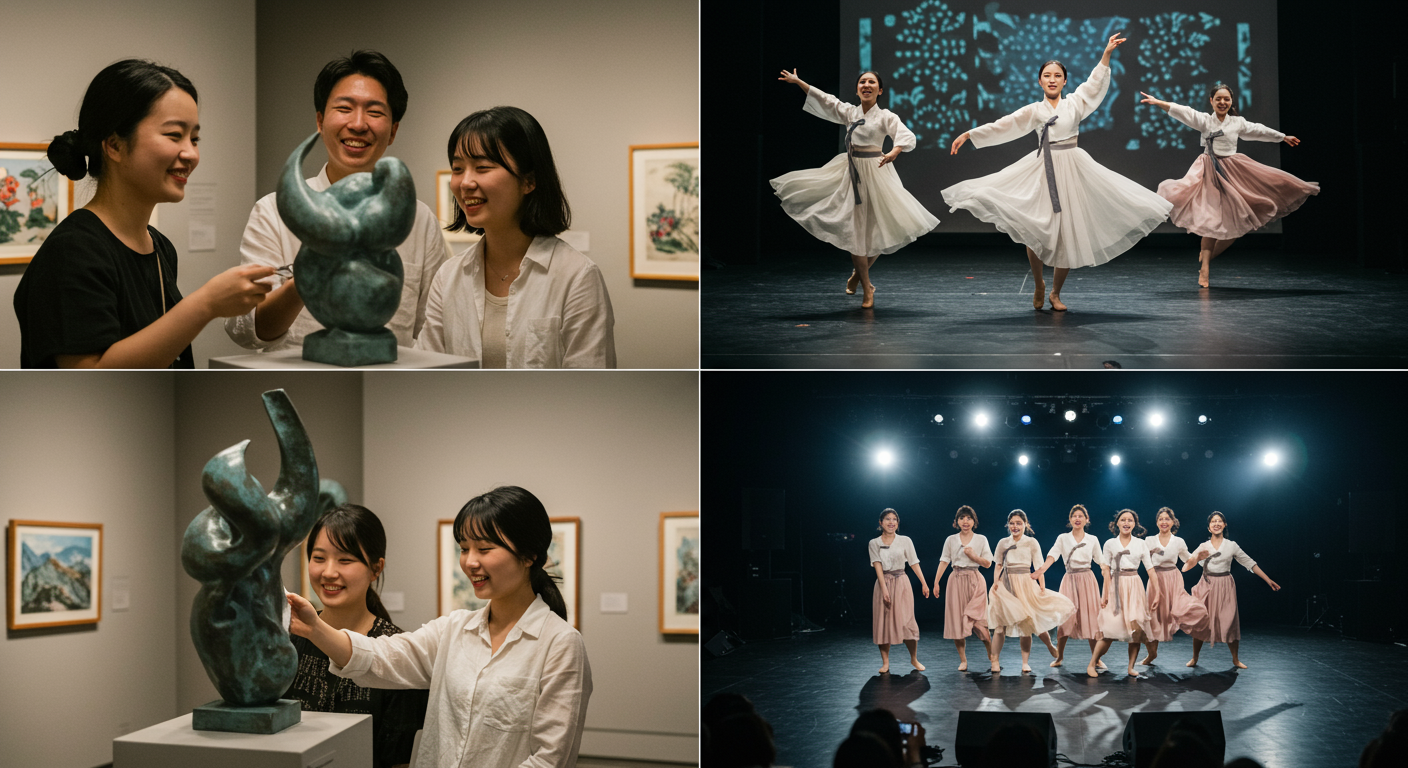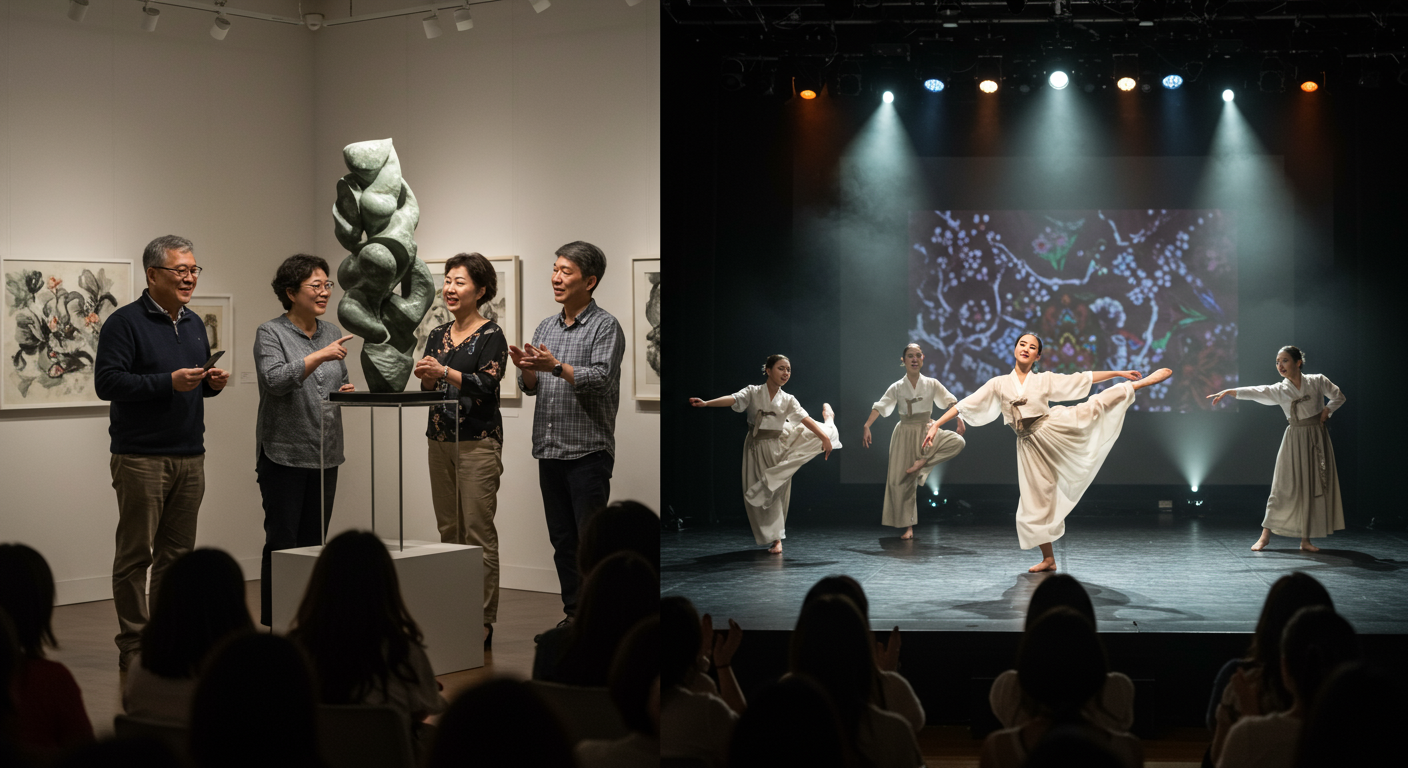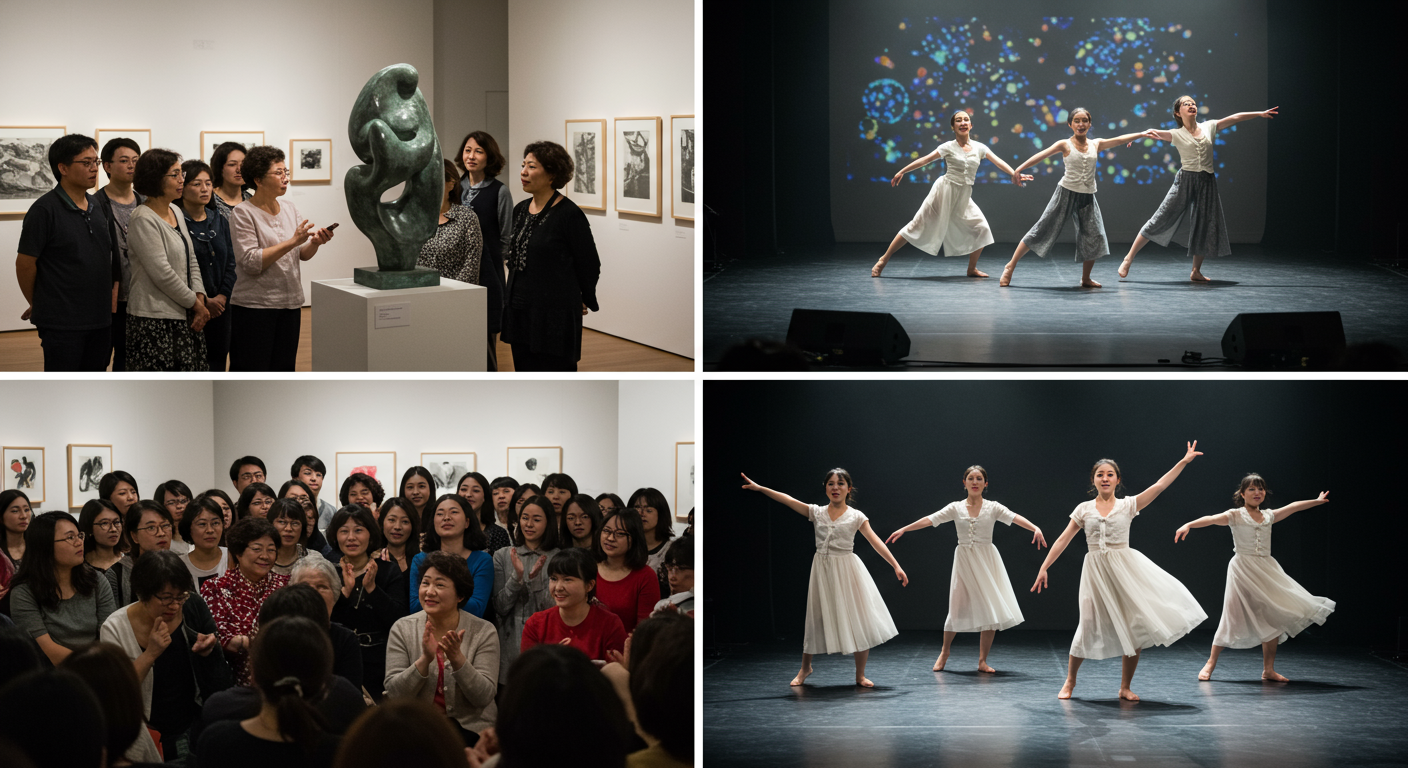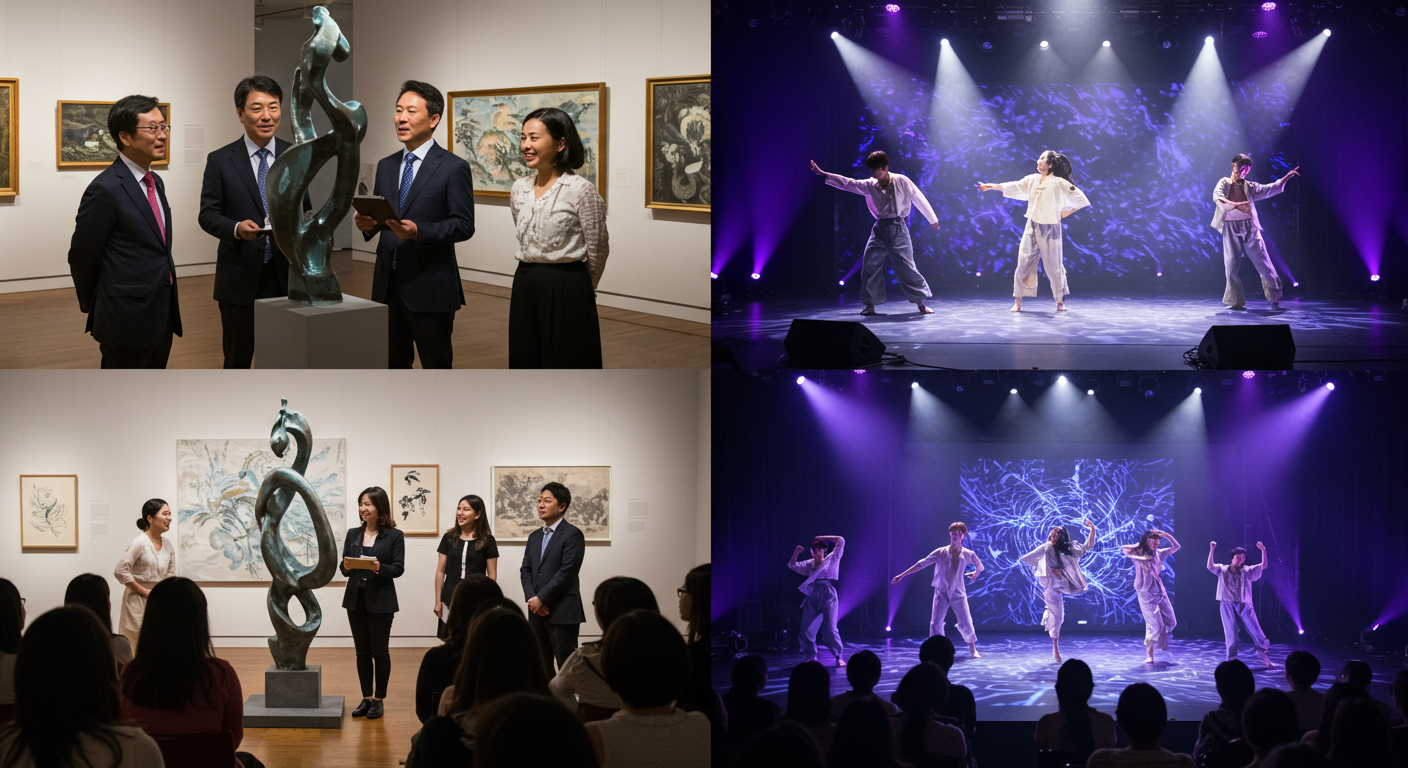Unveiling the Future: Why Korean Contemporary Dance is the Next Big Art Investment
Unveiling the Future: Why Korean Contemporary Dance is the Next Big Art Investment
Have you ever wondered if true value lies beyond the obvious? What if the next major investment opportunity isn't in stocks or real estate, but something far more vibrant, soulful, and culturally profound?
Hello everyone! It’s me again, sharing a discovery that has genuinely shifted my perspective. For years, I’ve been fascinated by the intersection of culture and economy, always looking for those overlooked gems. And honestly, for a long time, I never thought I’d be talking about something as ephemeral and beautiful as dance in the same breath as "investment." Yet, here we are, because Korean contemporary dance is quietly, but powerfully, breaking barriers and creating a compelling new frontier for art collectors and cultural patrons worldwide. Let's dive into why this dynamic art form isn't just a spectacle, but a serious consideration for your portfolio.
Table of Contents
The Underrated Power of Cultural Investment
For most of my career, when someone mentioned "art investment," my mind immediately jumped to paintings, sculptures, maybe even rare books. But the cultural landscape is evolving, and so should our investment strategies. We're talking about a world where digital art sells for millions and NFTs of unique performances are becoming a thing. There's a growing understanding that culture, in all its forms, holds intrinsic value that can also translate into significant financial returns. This isn’t just about making money; it’s about supporting artists, preserving heritage, and, quite frankly, being on the cutting edge of what's next. It’s a bit like investing in a startup before it becomes a household name – you get in early, help it grow, and share in its success. I mean, who doesn't want to be the one who saw the potential first?
 Description: "A diverse group of investors, a mix of young and old, gathered in a sophisticated art gallery, looking at an abstract sculpture with curious and thoughtful expressions. The atmosphere is quiet and contemplative, with soft lighting highlighting the art. Realistic photo style."
Description: "A diverse group of investors, a mix of young and old, gathered in a sophisticated art gallery, looking at an abstract sculpture with curious and thoughtful expressions. The atmosphere is quiet and contemplative, with soft lighting highlighting the art. Realistic photo style."
Understanding Korean Contemporary Dance
Korean contemporary dance is a fascinating blend of ancient traditions and modern innovation. It's not just about graceful movements; it’s often a powerful commentary on society, history, and personal experience. Unlike some more rigid classical forms, contemporary dance from Korea embraces experimentation, improvisation, and cross-cultural dialogue. I remember seeing a performance a few years back – it was something like "One Dance, an Embodiment of Korean Dance Today," and it blew my mind. The way the dancers moved, the stories they told without uttering a single word, it was just… something else. It pulls from traditional Korean dance forms like *pungmul* and *salpuri*, but then infuses them with elements of modern ballet, hip-hop, and even theater. This unique fusion is what makes it so captivating and, in my opinion, so undervalued globally.
To give you a better idea, here are some key characteristics that set it apart:
| Characteristic | Description | Investment Relevance |
|---|---|---|
| Fusion of Tradition & Modernity | Combines traditional Korean movements with contemporary styles. | Broad appeal, unique identity in global market. |
| Narrative Depth | Often explores social issues, historical events, or philosophical themes. | Resonates with diverse audiences, cultural significance adds value. |
| Innovation & Experimentation | Pushing boundaries with new choreographic techniques and interdisciplinary collaborations. | High potential for critical acclaim and disruptive market presence. |
 Description: "A female Korean contemporary dancer in mid-movement, her body gracefully twisted in an abstract pose, on a dimly lit stage with subtle traditional Korean patterns projected onto the background. The atmosphere is intense and dramatic. Artistic photo style."
Description: "A female Korean contemporary dancer in mid-movement, her body gracefully twisted in an abstract pose, on a dimly lit stage with subtle traditional Korean patterns projected onto the background. The atmosphere is intense and dramatic. Artistic photo style."
Identifying Investment Opportunities in Performing Arts
Now, I know what you’re thinking: "How do I 'invest' in dance? It's not a painting I can hang on my wall!" And you're right, it's different. But that's exactly where the opportunity lies. Investment in performing arts often takes less traditional forms, but the principles of supporting talent and expecting future returns (both financial and cultural) are the same. It’s about being a patron, yes, but a smart one. Think of it as investing in the intellectual property and future earning potential of an artist or a dance company.
Here are some ways you can get involved, and trust me, these aren't just for billionaires:
- Direct Patronage & Sponsorship: This is the most straightforward. You can sponsor a specific production, a young dancer, or even an entire company. In return, you might get special access, recognition, or even a share of future revenue from that specific work or artist’s growth. It’s a bit like venture capital for the arts.
- NFTs of Performances/Choreography: This is where things get really interesting, especially with "The Most Contemporary Art: Korean Dance." Imagine owning a unique digital token tied to a groundbreaking dance performance. As the artist's fame grows, so does the value of that NFT. It's a new frontier, but one with immense potential.
- Investing in Production Companies: Some companies specialize in producing and promoting contemporary dance. Investing in these entities allows you to indirectly support multiple artists and benefit from the overall growth of the sector.
- Fractional Ownership Platforms: While still nascent for performing arts, similar models to fine art platforms might emerge where you can own a "share" of a valuable artistic asset or even a portion of future touring revenues.
Navigating the Global Art Market: Challenges and Triumphs
Of course, it's not all rainbows and dividends. The global art market, especially for non-traditional forms like dance, comes with its own set of hurdles. There's the challenge of cultural differences, language barriers, and simply getting enough exposure. For Korean contemporary dance, the biggest obstacle has often been breaking through the Western-centric view of "high art." But that, my friends, is exactly where the "Breaking Barriers, Boundaries and Bias" aspect comes in. Korean artists are relentlessly pushing past these limitations.
"The greatest triumphs often come from overcoming the steepest challenges. Korean contemporary dance is not just performing; it's asserting its global presence."
We're seeing more international collaborations, digital showcases, and even major cultural festivals dedicating entire sections to Korean dance. This increased visibility means a growing audience, more critical acclaim, and ultimately, higher value for the art form and its creators. Think about the K-Pop phenomenon – who would've thought that would become a global powerhouse just a few decades ago? Cultural shifts like that don’t happen overnight, but once they gain momentum, they’re unstoppable. And I feel like Korean contemporary dance is on the cusp of something very similar.
 Description: "A dynamic and diverse group of young Korean contemporary dancers performing together on a large, modern stage under bright spotlights, facing a large, enthusiastic international audience. The mood is energetic and celebratory. Wide-angle, vibrant photo style."
Description: "A dynamic and diverse group of young Korean contemporary dancers performing together on a large, modern stage under bright spotlights, facing a large, enthusiastic international audience. The mood is energetic and celebratory. Wide-angle, vibrant photo style."
Building Your Portfolio: Practical Steps
So, you're intrigued, right? You're probably wondering how you, a regular person, can start building a portfolio in this exciting, emerging market. It's simpler than you think, but it does require some homework. Don't just throw money at the first dancer you see on YouTube; do your research, connect with the community, and understand the ecosystem.
The Future of Art Investment: A Korean Perspective
The future of art investment is dynamic, global, and increasingly diverse. What we're witnessing with Korean contemporary dance is not just a passing trend, but a testament to the power of cultural exchange and the universal appeal of human expression. As the world becomes more interconnected, niche art forms gain unprecedented reach and appreciation. This particular area, with its rich historical roots and fearless modern spirit, is exceptionally well-positioned for growth.
I mean, who knows, perhaps a decade from now, we'll look back and say, "Remember when Korean contemporary dance was an overlooked gem? I got in early!" It’s not just an investment in art; it's an investment in culture, in vision, and in the sheer audacity of artists who dare to break conventions. And that, in my book, is priceless. Maybe not in the literal sense for your balance sheet, but you know what I mean. 😉
 Description: "A visionary digital art piece depicting a futuristic stage with abstract glowing lines, where a silhouetted figure performs a dynamic dance, surrounded by a swirling vortex of vibrant purple and blue light. The mood is ethereal and groundbreaking. Digital illustration style."
Description: "A visionary digital art piece depicting a futuristic stage with abstract glowing lines, where a silhouetted figure performs a dynamic dance, surrounded by a swirling vortex of vibrant purple and blue light. The mood is ethereal and groundbreaking. Digital illustration style."
Your Burning Questions Answered!
That's a fantastic question, and one I get asked a lot. While patronage is definitely part of it, the profit potential is becoming increasingly real. As Korean contemporary dance gains global recognition and its artists become more established, the value of early support, unique performance NFTs, or shares in production companies can appreciate significantly. It's a long-term play, like any emerging market, but the cultural capital translates into tangible assets over time. Think of it as a blend of passion and profit!
Ah, the digital age and its complexities! For dance-related NFTs or other digital assets, authenticity is key. Always purchase from reputable platforms that work directly with artists or established cultural institutions. Look for detailed metadata, clear rights agreements (e.g., whether you own the performance or just a digital token of it), and a verifiable blockchain record. Engaging with known art tech companies or cultural foundations that are venturing into this space can also provide a layer of security. Do your due diligence, just like you would with any other digital investment!
© 2024 Your Blog Name. All Rights Reserved.
Comments
Post a Comment